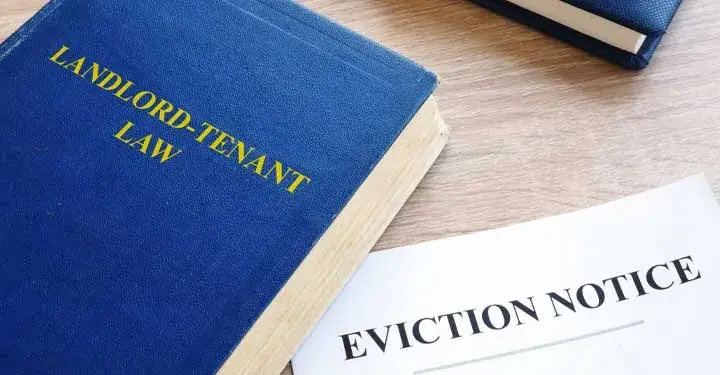
Unlawful detainers are eviction proceedings against tenants who have failed to pay rent or have violated their lease. How to bring or defend an unlawful detainer is something both landlords and tenants should know. Find out more about this process.
Find out more about landlords


by Ronna L. DeLoe, Esq.
Ronna L. DeLoe is a freelance writer and a published author who has written hundreds of legal articles. She does.
Updated on: January 8, 2024 · 5 min read
Pursuant to state law, landlords must keep rented premises in good repair and can't evict a tenant just because they want the apartment back. Likewise, a tenant must pay rent and must not destroy the property.

Both landlords and tenants should become familiar with what's included in an unlawful detainer proceeding because, if the tenant fails to pay or violates the lease, the landlord can bring an eviction proceeding against the tenant.
An unlawful detainer is the process where, in many states, a landlord can regain possession of the tenant's apartment. Some states call this an eviction proceeding. Each state has different laws and requirements for evicting tenants, so, if you're a landlord, consult a landlord-tenant attorney or have someone help you draft the proper notices your state requires.
Eviction actions and unlawful detainer proceedings are similar in that the goals are removing the tenant lawfully and collecting rent they owe. The requirements for unlawful detainer are that the tenant either:
If you're the landlord, before you can remove your tenant, you must serve them with proper notice. What constitutes proper notice is different in each state and can vary within a given state in different towns or counties. Check your state laws or with a landlord-tenant attorney to make sure your notice is correct and that the tenant is served correctly, or you'll have to redo it.
As landlord, you must serve notice in unlawful detainer proceedings before you can take any court action. It's illegal to use what are known as self-help eviction tactics to remove the tenant, such as turning off any utilities, locking the tenant out, creating a disturbance to annoy the tenant, or gaining unnecessary access to the tenant's apartment.
An unlawful detainer action starts with your serving the tenant a notice to pay rent or quit, notice to quit, termination of tenancy notice, or notice to perform covenants or quit, depending on where you live. Some notices allow the tenant to pay all the rent to stop court proceedings. Other notices, such as the notice to perform covenants or quit, allow the tenant to fix their lease violation by removing their pet or agreeing to stop playing their music at 2 a.m.
The notices have different time limits depending on your state. Some notices allow the tenant only three days to cure or move, while some give 10, 14, 30, 60, or even 90 days.
The next step in the unlawful detainer process is the service of a summons and complaint or petition on the tenant. The tenant must be served the initial notice to quit or notice of eviction properly, and also must receive the summons and complaint properly.
In many states, tenants may file a response to the complaint or petition. If you're the tenant, you should file a response with the help of a landlord-tenant attorney who represents tenants. In some states, if you don't file a response, you'll be in default and the court can enter a judgment of eviction.
Likewise, if you fail to show up on the court date, the court can enter a default judgment against you for failure to appear. If you appear on the court date, the court may schedule a hearing if you cannot settle the case. When a hearing is scheduled, you have to be prepared to go forward with a full trial, unless you're able to settle the case beforehand.
If you're the tenant, you may have defenses to an unlawful detainer. Defenses tell the court why eviction is not warranted. If you serve a written response, put your defenses in the response. If you're not allowed to serve a response, orally argue your defenses in court.
Some defenses to unlawful detainer lawsuits related to the landlord's behavior and actions include:
On the tenant side, another defense to unlawful detainer lawsuits would be that the tenant paid the full amount of rent timely, pursuant to the notice to pay or quit.
If the court finds that the landlord has proved their case, the court will enter a judgment against the tenant for eviction. The court or the landlord then fills out a writ of possession to give to the sheriff or marshal. The tenant receives a notice of eviction that gets posted on the property itself, giving the tenant a few days or a week to vacate; otherwise the sheriff will proceed with eviction.
The court also could award money damages to the landlord. California and other states have procedures to collect money after the court enters a judgment for money damages.
Using a landlord-tenant attorney is essential in housing court, because if part of the process is wrong, the landlord must start over. Also, tenants could be wrongfully evicted if they have good legal defenses but aren't aware of them, so having a good landlord-tenant attorney is important. Whether you're the landlord or the tenant, it's important to know your rights and duties, so you're prepared to act if the time comes.
Find out more about LandlordsThis article is for informational purposes. This content is not legal advice, it is the expression of the author and has not been evaluated by LegalZoom for accuracy or changes in the law.
You may also like
Writing a will is one of the most important things you can do for yourself and for your loved ones, and it can be done in just minutes. Are you ready to get started?
July 21, 2024 · 11min read
Considering an LLC for your business? The application process isn't complicated, but to apply for an LLC, you'll have to do some homework first.
July 29, 2024 · 11min read
A power of attorney can give trusted individuals the power to make decisions on your behalf—but only in certain situations.
August 29, 2024 · 20min read